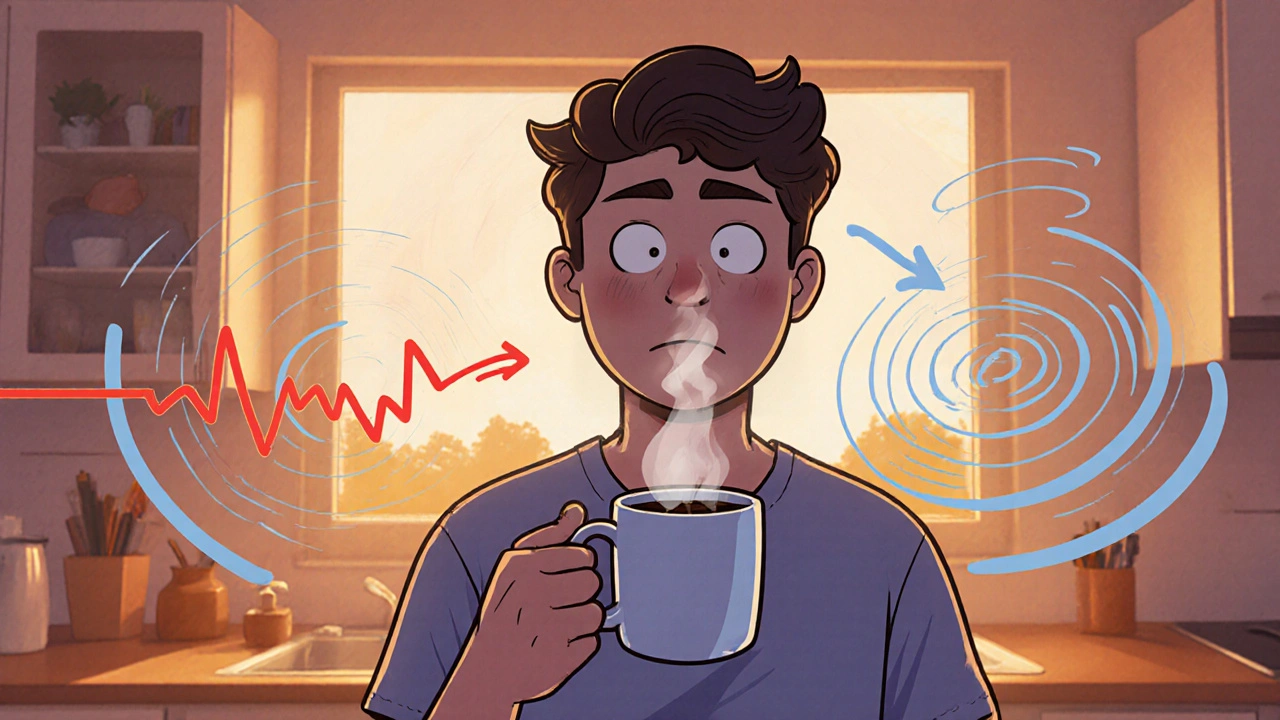Caffeine Health: Effects, Risks, and What You Really Need to Know
When you drink coffee, tea, or an energy drink, you're consuming caffeine, a natural stimulant that affects your brain and central nervous system. Also known as 1,3,7-trimethylxanthine, it’s the most widely used psychoactive substance in the world. Unlike prescription drugs, you don’t need a script to get it—but that doesn’t mean it’s harmless. Too much can wreck your sleep, spike your blood pressure, or trigger anxiety. Too little, and you might feel foggy, tired, or even get a headache. The key isn’t avoiding it—it’s understanding how it works in your body.
Most people think caffeine is just about staying awake. But it does more. It blocks adenosine, a chemical that builds up in your brain and makes you sleepy. When caffeine latches onto those receptors, you don’t feel tired. But when it wears off, the adenosine rushes back—and that’s when the crash hits. That’s also why people who drink caffeine daily need more over time just to feel the same effect. And if you suddenly quit? You might get headaches, irritability, or fatigue for a few days. That’s caffeine withdrawal, a real, measurable physical reaction that affects up to 50% of regular users. It’s not weakness. It’s biology.
Then there’s the heart. Caffeine and heart, a connection studied in over 200 clinical trials. For most people, moderate intake (under 400mg a day) doesn’t raise long-term heart risk. But if you have arrhythmias, high blood pressure, or are sensitive to stimulants, even one cup can cause palpitations or a spike in blood pressure. Studies show that in people with existing heart conditions, caffeine can trigger episodes that need medical attention. It’s not a universal danger—but it’s not harmless either. And then there’s sleep. Caffeine and sleep, a relationship where timing matters more than amount. Even if you fall asleep after a late afternoon coffee, your deep sleep is cut by up to 20%. That means you’re not resting properly—even if you think you are.
Some people swear caffeine boosts focus. Others say it just makes them jittery. The truth? It depends on your genes, your liver, your stress levels, and how much you’ve built up a tolerance. One person’s energy boost is another’s panic attack. There’s no one-size-fits-all dose. The FDA says 400mg a day is safe for healthy adults—that’s about four cups of coffee. But if you’re on medications, pregnant, or have anxiety, that number drops fast. Some people feel effects from just 50mg.
You’ll find plenty of posts below that dig into the real-world side of caffeine: how it interacts with medications like antidepressants and blood pressure drugs, how it affects people with chronic conditions, and how to cut back without the headaches. Some will tell you how to use it smartly. Others will show you the hidden risks most blogs ignore. This isn’t about fear. It’s about awareness. You don’t have to quit caffeine. But you should know exactly what it’s doing to you—before your next cup.

Caffeine and Dizziness: Should You Cut Back?
Explore how caffeine can trigger dizziness, who’s most at risk, and practical steps to reduce intake while staying alert.
October 17 2025